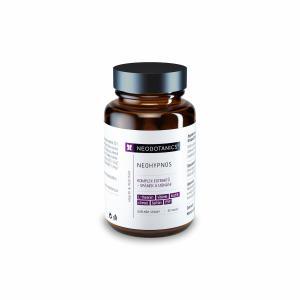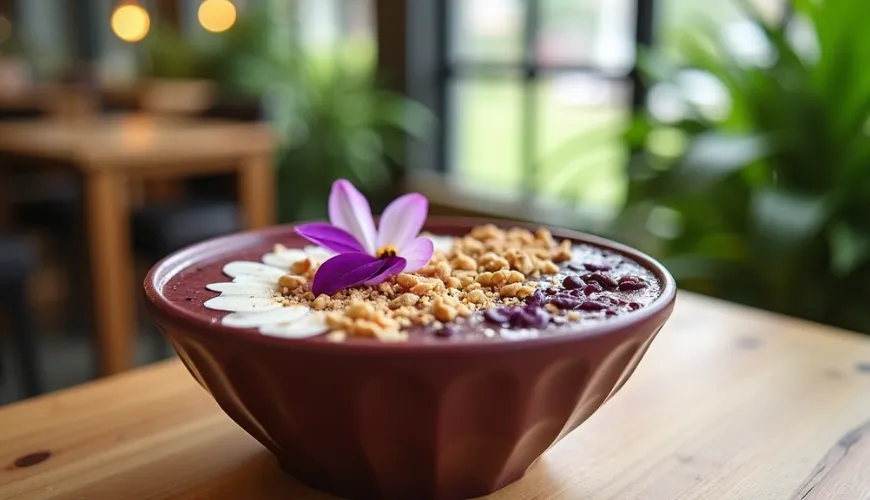
A Healthy Diet for Alkalizing the Body for Everyone

Alkalizing the Body - How to Change Your Diet and Refind Balance
The topic of body acidification has become a widely discussed point in recent years, not only among advocates of a healthy lifestyle but also among doctors and nutritionists. Although not every expert agrees with the precise terminology of "acidification," it is undeniable that a diet rich in processed foods, sugars, and animal products can disrupt the body's natural acid-base balance. This is why more and more people are interested in a diet that supports body alkalization—a nutritional approach focused on balancing the body's pH and promoting overall health.
What Does "Acidified Body" Mean?
The human body is naturally capable of maintaining a slightly alkaline blood pH around 7.4. This system is finely tuned and involves the lungs, kidneys, liver, and other organs. However, due to a long-term poor diet, stress, or lack of exercise, this system can become overloaded. Acidification may not manifest in the blood itself (which maintains its pH at all costs) but in the tissues and intercellular spaces where acids accumulate.
Typical symptoms that many associate with body acidification include fatigue, headaches, sleep disorders, muscle cramps, weakened immunity, or digestive problems. Although these symptoms can have many different causes, changing the diet towards a greater proportion of alkaline-forming foods can bring relief.
Try our natural products
Alkaline vs. Acid-Forming Foods
It's not about whether a food is acidic or alkaline in taste—what matters is the metabolic residue it leaves in the body. For example, a lemon, although it tastes acidic, acts as an alkaline-forming food in the body. Conversely, meat, bread, cheese, or sweets form acid-forming residues, even if their taste isn't pronounced.
Alkaline-forming foods are typically plant-based—fresh vegetables, fruits, sprouts, herbs, and some types of nuts and seeds. Water with lemon, vegetable juices, herbal teas, or quality green foods like spirulina and young barley are popular components of an alkalizing regimen.
Changing your diet towards alkalization doesn't mean a radical diet but rather a more balanced approach to what we eat every day. The goal is to get more alkaline-forming substances into the body while limiting those that burden the organism.
What Might an Alkalizing Diet Look Like?
When creating an alkalizing diet, it's important to think not only about the pH of foods but also about how they are processed and in what form we consume them. Freshness, variety, and minimal processing of ingredients are key. Ideally, alkaline-forming foods should make up about 70% of total intake.
An example of a daily menu might look like this:
Breakfast
- Warm buckwheat porridge with cinnamon, apple, and chopped almonds
- Glass of water with freshly squeezed lemon juice
Morning Snack
- Smoothie with spinach, banana, cucumber, and a teaspoon of flaxseeds
- Green tea or plain water
Lunch
- Vegetable risotto with quinoa, broccoli, and zucchini with fresh herbs
- Salad of arugula, radishes, and carrots with flaxseed oil
Afternoon Snack
- Cup of fresh strawberries or grapes
- Handful of raw cashews
Dinner
- Roasted pumpkin with chickpeas and tahini sauce
- Miso soup or light vegetable broth
Meals should be as minimally processed as possible. Adequate hydration is also important, as water helps remove waste products from the body. The best choice is filtered water, possibly with a drop of lemon or a mint leaf.
An Alkalizing Diet Is Not Just About Food
While diet plays a crucial role, alkalizing the body is a comprehensive process that involves multiple aspects of life. Stress, lack of exercise, a polluted environment, or poor sleep can acidify the body just as much as an unsuitable diet.
Consider this example: Jana, a 40-year-old accountant, suffered from frequent fatigue, heartburn, and back pain. Medical examinations were fine, but she didn't feel well. After consulting with a nutritionist, she began changing her diet—adding more vegetables, legumes, and stopped drinking sugary beverages. She started walking, tried breathing exercises, and gradually reduced coffee. After a few weeks, she noticed improvements—less fatigue, better digestion, and improved sleep quality.
This story illustrates how important it is to see the body as a whole. Alkalizing is not a one-time cleanse but a permanent approach to lifestyle.
Myths and Facts About Body Alkalization
The question of whether acidification is a real health problem is still a matter of debate. Critics argue that the body has sufficient mechanisms to maintain pH, while advocates claim that long-term poor lifestyle disrupts balance at the cellular level.
American dietitian Susan E. Brown, author of The Acid-Alkaline Food Guide, states: "Even though blood pH remains stable, the body often sacrifices alkaline minerals like calcium or magnesium from bones and teeth to maintain it. This can have long-term consequences."
From this perspective, a diet supporting alkalinity makes sense—not only as prevention but also as a tool to support vitality and health.
How to Start?
Changing eating habits is not about perfection but about balance. It's not necessary to completely eliminate all acid-forming foods—they can have their place if complemented with enough vegetables, fruits, and clean water. A good starting point might be deciding to eat at least 5 servings of fresh vegetables every day, or choosing fresh fruit instead of a sweet dessert.
For those who want to support alkalization more intensively, there are also short-term regimens—such as a 7-day vegetable diet or a drinking regime with herbal teas. It's important to listen to your body and proceed sensibly.
Today, there is a wide range of ecological and natural products on the market that can be great helpers—from organic green foods to fermented products and gentle detoxification agents. When choosing, it's always advisable to prioritize quality and the origin of ingredients, ideally from organic farming.
You might ask: Can a change in diet really affect how we feel, sleep, or concentrate? Many people's experiences show that it can. The body has an amazing ability to regenerate if we give it the space and the right fuel. And an alkalizing diet can be one of the first steps to kickstart a transformation, not just physically but mentally as well.



